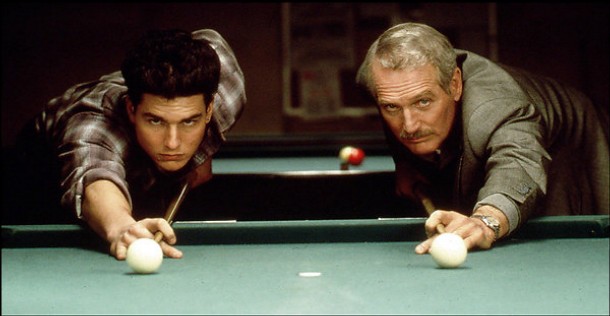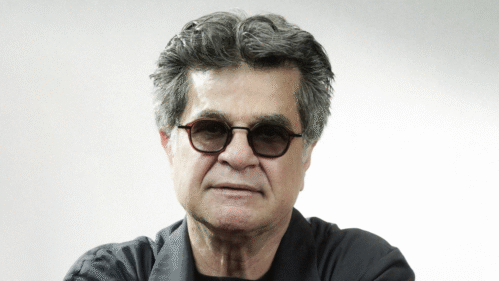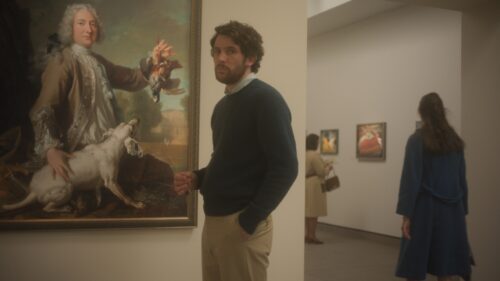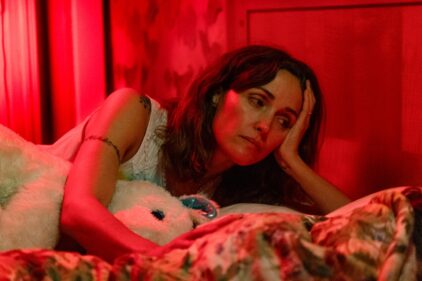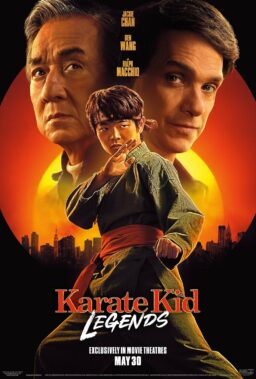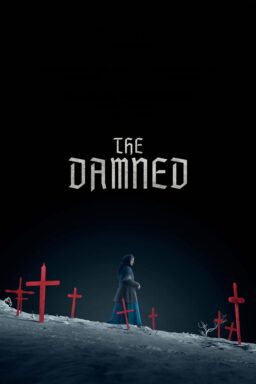NEW YORK
“For years, all I had were a bed, a desk and a chair,” Tom Cruise said. “When I was making a movie, they put me in hotel rooms. Between jobs, I moved back into my apartment, and my lifestyle dropped considerably.”
Cruise was not talking about decades of struggle and poverty here. He is only 24, and his years in the room with the chair and the desk began when he was 18 — when he moved to New York and started looking for work as an actor. New York is filled with young actors sitting on their beds and staring at their chairs and dreaming of the big time, but for Cruise, it happened quickly. He got a day’s work on “Endless Love” the 1981 teenage romance film starring Brooke Shields. Then he played the crazy kid in “Taps,” opposite two other newcomers, Sean Penn and Timothy Hutton. Then he was steered into a horny teenager movie called “Losing It,” but after that came 1983’s “Risky Business” and then “Top Gun,” which probably will be the box-office champion of 1986. Now here he is, 24 years old, co-starring with Paul Newman in Martin Scorsese‘s “The Color of Money.” To Hollywood’s money men, no other young actor is more bankable than Tom Cruise.
“It’s a strange thing, being handed so much power, to do whatever you want to do,” he said, clasping his hands together and looking at the floor. “I’m offered a lot of movies, but I haven’t worked in six or seven months, because I want to sit back and evaluate where I want to go next. My point of view and my values haven’t changed. Everybody wants to push and pull me, but I refuse to change my lifestyle.”
One day you were eating grilled cheese sandwiches, and the next day you became a famous movie star?
“Don’t get me wrong. I want to be in this position. But I get inundated with so much information. I spend the day weeding through it. Charities, benefits, job offers, requests. And I don’t want a huge company in front of me. I trust the people who work for me, and I spend time with them, and I want to hear their ideas and keep in touch. A lot of the challenge for me right now is simply to get my life together.”
For Cruise, “Risky Business” was the breakthrough, a sensational debut in which he was all over the screen as a guilt-ridden, likable kid who got in lots of trouble. But “Top Gun” put him over the top, using sensational special effects and aerial sequences to tell the story of Navy F-14 pilots fighting to be the best. Cruise played the rash, talented young pilot nicknamed “Maverick” who not only had to prove himself, but vindicate the memory of his father. “Top Gun” has made Cruise the top box-office star of the year, and it’s Hollywood folklore that with a hit that big, an actor can write his own ticket for a few years.
Even before “Top Gun” was released, however, Cruise was at work in “The Color of Money,” sort of a sequel to the 1961 movie “The Hustler.” In “The Color of Money,” Cruise plays a kid named Vincent Lauria, who is a brilliant pool player but a complete flake. Paul Newman reprises the role of “Fast Eddie” Felson – who, 25 years ago in “The Hustler,” was as hot as Vince is today.
The director of “The Color of Money” is Martin Scorsese, who knows pool halls; he staged a sudden, violent pool hall fight scene in his 1973 film “Mean Streets.” The director provides Vince with another Scorsese trademark, a punishing streak of jealousy. Like the Robert De Niro character in “Raging Bull,” Cruise is insecure about his hold on a sexy girlfriend (Mary Elizabeth Mastrantonio), and Newman uses that insecurity as a way to manipulate him.
As an actor, Cruise has the qualities to walk the line between leading man and insecure kid. For this interview, he came dressed right out of “Top Gun“: cowboy boots, jeans and a brown leather bomber jacket. His hair is short, dark and preppy, and his face is interesting because when he smiles he has a wide-open, almost goofy sincerity. When serious, he can look so intense that you almost suspect the smile is a mask — that his life has not been as sunny as it seems.
Cruise said he had a lonely childhood, and perhaps his acting is inspired by whatever resources he found to draw on during those years; maybe that’s why he suggests greater depth than your average young movie actor. He was born in Syracuse, N.Y., the only boy among four children, and his parents divorced when he was young. Memories of these years were divulged reluctantly. “We stayed with my mother, and she moved around a lot. I went to five different high schools. Thirteen different schools in all. Growing up was . . .” Cruise paused. “I wouldn’t go back to those years for anything. Life was always from one extreme to the next. I never really had any friends. I spent most of my time alone, doing different things, especially little plays and skits.
“In high school, I discovered drama. I was a singer, a solo tenor, and I was in glee clubs and choirs, and a teacher suggested I try out for a high school production of ‘Guys and Dolls.’ I got the role of Nathan Detroit. And onstage, working, playing the role, I felt just really happy. At last I was working in something I understood. See, school for me was really difficult because of my problems with reading. I was dyslexic. Finally, on the stage, I felt I had something I felt good about.
“So, I’d saved up a little money from various jobs, and I had no particular plans for college. I was thinking of spending the money for a trip to Europe. But after I finished appearing in the play, I told my folks, ‘I’m going to New York to study to be an actor. I want to see how it goes.’ “
And he did, taking the ancient and traditional route, living in poverty, working at odd jobs, attending acting classes, going to auditions.
“My first movie was a hell of an experience,” Cruise said with a frown. “I got one day’s work on ‘Endless Love,’ and the director was always grabbing my chest. I wondered, what’s going on around here? He did it a couple of times, and I walked away. It was all pretty strange. I was so naive, I didn’t understand.
“Then I did ‘Taps,’ which was a good experience, and then my agents at the time wanted me to do ‘Losing It,’ which was a teenage sex film. I felt uncomfortable with the subject matter, but the agents said, ‘Do it, do it — it’s good for your career.’ As it turned out, it was, because I learned a lot of things, including what kinds of movies to avoid.”
In the meantime, Cruise said, he had told director Francis Coppola that he wanted to work for him and would take any role — it didn’t matter. Coppola invited him to workshops and rehearsals for the movie “Rumble Fish,” which starred Matt Dillon, Vincent Spano and Mickey Rourke, but then Cruise was offered the lead in “Risky Business,” and took it. That was probably the turning point in his career.
“A lot of people thought I was crazy to walk away from a Coppola movie to take what looked like another teenage sex comedy,” Cruise said, “but I read the script and it was so well-written. So I took a chance.”
Then came the sincere but unsuccessful youth movie “All the Right Moves,” with Cruise as a small-town Pennsylvania kid who depends on high-school football as his ticket out of town. “The thing I remember about that one,” he said, “was the studio’s insisting we put in a love scene, no matter whether it had anything to do with the story or not. It seemed so stupid and out of place.”
Although “Risky Business” was his only really big box-office winner, Cruise was clearly in the top ranks of young Hollywood stars. “Top Gun” pushed him over the top. “It was the first time I’d played a character who was larger than life,” he said, “and it was the first movie where I’d been involved from the early planning stages. Also, I was playing a slightly older character for a change – somebody about my age.”
I told him the film had fallen into two parts for me. I liked all of the aerial sequences, with Cruise as the hot, young F-14 pilot, but the scenes on the ground — especially his love affair with a flight instructor (Kelly McGillis) — didn’t seem convincing.
“Yeah. We had some problems there,” he said. “Kelly is a fantastic actress. It wasn’t her fault. I just remember scenes like the dinner scene we had together. It just never worked. Our relationship didn’t have the dimension the other relationships in the movie had. The script wasn’t right from the beginning. It was hard to make people believe a sexy woman like that would, first of all, be a flight instructor, and, second, be interested in a kid like me. It never really felt like a love story.”
Was this another case of trying to force a romantic situation where none was really necessary?
“Maybe.”
But audiences didn’t hold the romance against “Top Gun,” which has earned more than $150 million at the box office. Now here comes “The Color of Money,” with the dynamic teaming of Paul Newman and Cruise. The movie is not, strictly speaking, a sequel, but simply another chapter in Felson’s lifelong obsession with pool. The story was clearly Paul Newman’s home turf. I asked Cruise how they got along, and whether Newman made things easy for him.
“He didn’t go out of his way to make me feel comfortable, or uncomfortable,” Cruise said carefully. “He is who he is. I was nervous when I went to make the movie – I’m always nervous at the beginning of anything new – and here was Paul Newman, and I’d seen all of his movies, and you think about the characters he’s played – not only the strong and good ones, but also the movies like ‘Slap Shot’ and ‘The Verdict,’ with the grungy characters, foul-mouthed and drunk. He’s got such a wide range. And when you meet him, he’s intelligent, dignified, very elegant. He could have easily intimidated me. But he put me at ease. What he’s most concerned about is his rapport with the audience. He wants the audience to connect with him.”
So there wasn’t any shop talk between the young actor and the great old veteran?
“With acting, there are no tricks of the trade. That’s what I think. You learn the basics of creating the character, and you do the best you can. He never said, ‘This is how I do things.’ He never pulled the wise old guy routine.”
So how did you create the character?
“I didn’t want Vince to come over as an arrogant young hot-shot. There is always a kind of arrogance in youth, of course, and here’s this kid who knows how good he can play pool. His weak point is the woman, the woman of all women for him, and she was the controlling element in his life that he needed.
“Scorsese talked with me about the woman: ‘She’s those girls at the soda shop when I was growing up, tough girls who hung out and really weren’t so tough after all.’ For this character I play, apart from pool, his contact with reality is ‘The A-Team’ and ‘Star Wars.’ He works in a toy store, and here is this incredible woman he is so possessive about. That vulnerability is what keeps him from being too arrogant.”
In “The Hustler,” Willie Mosconi did a lot of the shots, but in “The Color of Money” no shots are faked, and the audience can see that you and Newman are really hitting the balls yourself.
“Actually, Newman made his own shots in ‘The Hustler,’ too,” Cruise said. “I think there was only one shot by Mosconi. For this movie, I spent months learning to shoot pool. Mike Siegel, the world straight pool champion, was my coach. There is one scene where the camera goes in a 360-degree circle without a single cut, and I have to clean off the whole table. We shot it 18 times.”
Until you finally got it right?
Cruise laughed. “I cleared the table 17 out of 18 times. It was just a case of getting everything lined up at once – the table, the camera, the placement of the camera. You couldn’t plan it all in advance, because if one shot was a half-inch off, it changed the next shot.”
Have you ever hustled pool for money?
“Once. We shot the movie in Chicago, and I went to the Blues Bar. I won $1.50. I was pretty proud of myself.”
And now you have “Top Gun” and “The Color of Money” in the theaters. And you’re still living with a bed and a desk and a chair?
“I’ve moved into a new apartment and I’m remodeling it. And it’s a funny thing, the movies. The contractor was there yesterday with his young son, and I was showing him some models of the F-14 fighter, because he’d seen the movie and he really liked it. And the contractor told me that after they went home, the kid said he’d really like to meet that Maverick guy. And the contractor said, ‘That was him — that was Tom Cruise. He was the guy who played Maverick.’
“And the kid said, ‘Naw, Dad. Maverick’s cool.’ “

